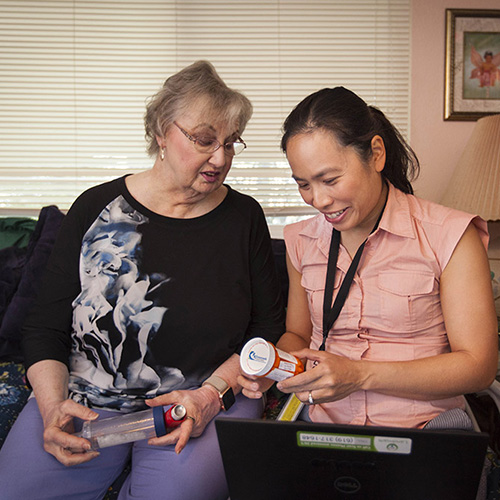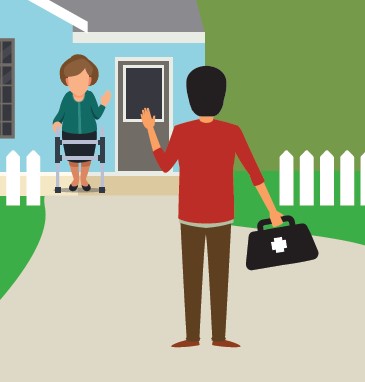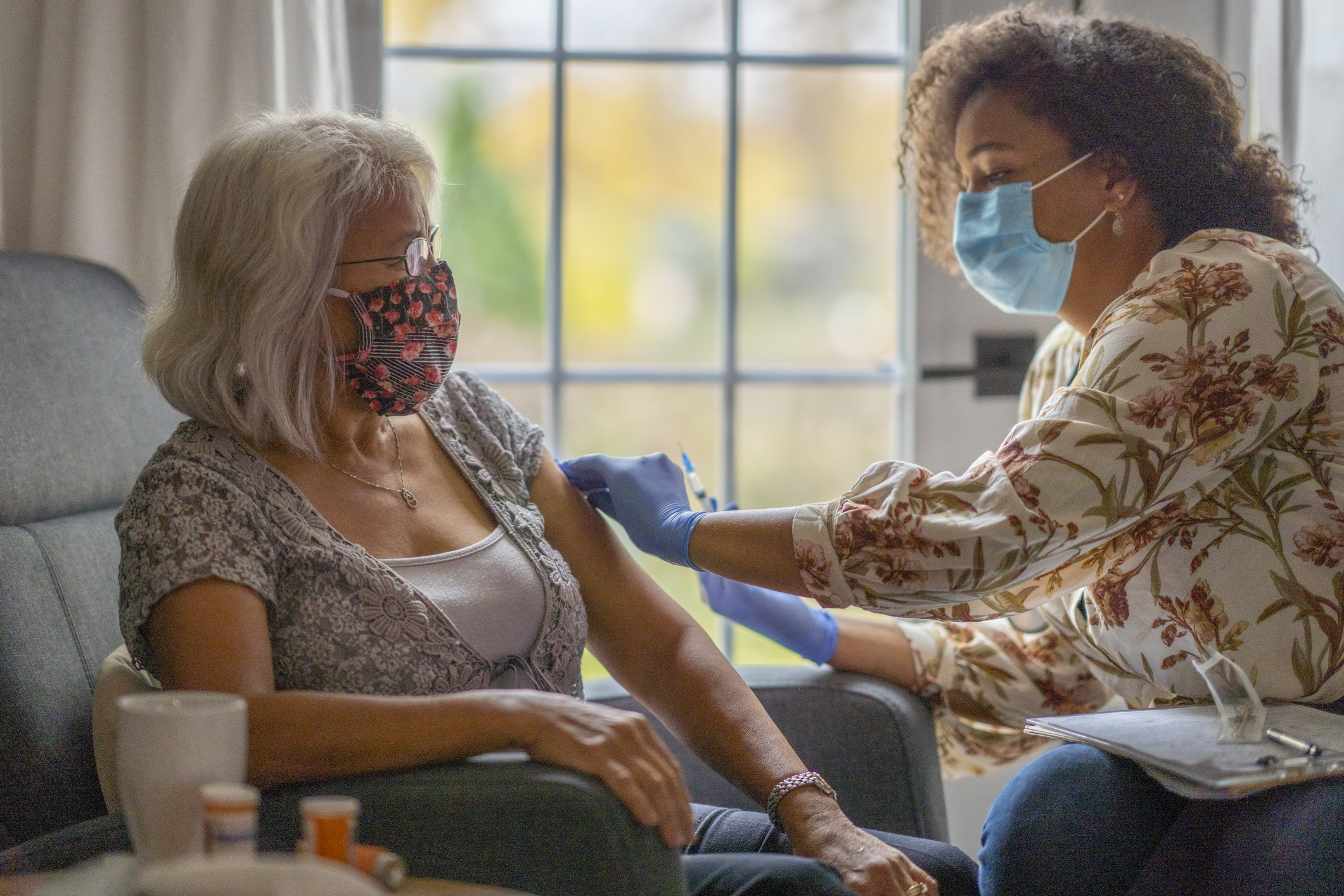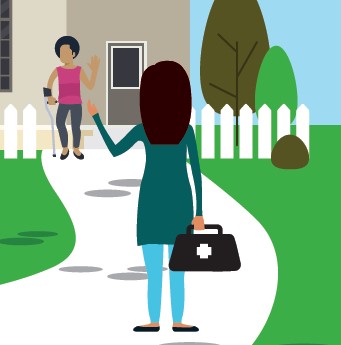
House Calls, Past and Present
Read to learn more and download our eBook, “House Calls in the New Age of Health Care.”
Less than 100 years ago, physician house calls made up 40 percent of doctor-patient encounters.1 What may seem like an old-fashioned concept, in-home medical care provides a modern opportunity for providers to deliver patient-centered care to the most vulnerable and frail patients. The house-call model can offer these patients ease of access, a multidisciplinary care team, family involvement, and extra time to discuss their health needs and goals.
Because house calls take place in the comfort of the patient’s home environment, they can be more conducive to creating a strong patient-provider relationship. During a house call, providers can actively engage patients in the healthcare discussion, educate them on their conditions, and ask them how they understand their health status.
The needs of patients with multiple chronic conditions are ongoing and require proactive treatment and diagnoses. To address this, house-call teams of specialists can be specially trained to care for patients with complex needs. Beyond providing medical care, providers can also see to the long-term physical, social, and mental health and well-being of patients.
Managing care in old and new ways
Landmark has enhanced medical outcomes of patients by managing care in new ways. These new ways are patient-centered and delivered by house calls, phone, and advanced technology such as telemedicine.
Whole-patient care delivery models provide coordinated routine medical care, 24/7 telephone support, urgent and post-hospital visits, behavioral health support, social work services, and palliative care.
For Landmark, this new delivery model has proven effective in improving longitudinal outcomes that help patients live longer, while reducing medical costs.2

A shift in status-quo
Providing care in a different way requires is a shift in the system and the typical doctor-patient routine. For Landmark, our medical providers are not the primary care providers (PCPs) for our patients. Landmark collaborates with PCPs, skilled nursing facilities and hospitals. Landmark focuses on safe post-discharge transitions to home and avoiding gaps in care. Collaborative in-home medical services and case management are required to meet the needs of society as the population ages.
How Landmark house calls support patients and families
Landmark house calls can make the patient and family feel supported through routine home visits, urgent visits, post-discharge visits, and 24/7 phone support. Regular in-home visits by a multidisciplinary team can:
- Improve patient access to medical care
- Identify new health conditions and prevent conditions from getting worse
- Identify mental, behavioral, and social needs
- Avoid unnecessary hospital visits
- Help patients take their medications properly
- Coordinate care and access to community services
- Assess and recommend safety measures (e.g. fall risk)
- Ensure care is in alignment with patient goals and wishes
Landmark’s in-home medical model includes the integration of medical, behavioral, mental, social, and palliative care. By providing care to patients when and where they need it, Landmark providers can prevent conditions from getting worse, and treat them on an urgent basis in the home environment.
To learn more about in-home medical care, click below:
References:
1. Deloitte Insights article, “Inside the patient journey: Three key touch points for consumer engagement strategies. Findings from the Deloitte 2018 Health Care Consumer Survey.”https://www2.deloitte.com/insights/us/en/industry/health-care/patient-engagement-health-care-consumer-survey.html
2. “Home-based Primary Care – New standard of care curbs high costs of care for 2 million sick and frail homebound adults”. American Academy of Home Care Medicine and The John A Hartford Foundation. October, 2018.

